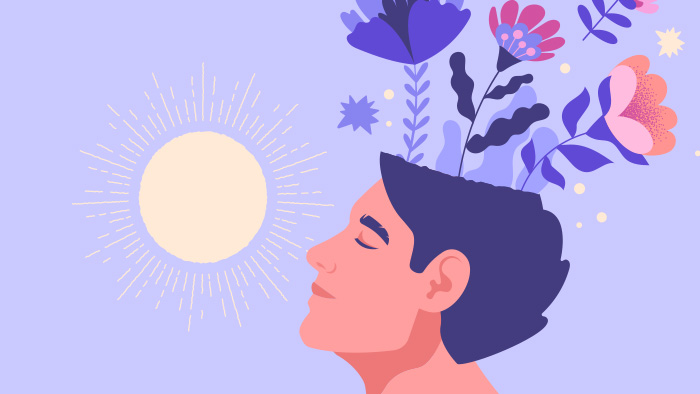
For most people, mental and physical health problems are seen as entirely separate. However, many professionals believe that if you have one type of problem, then the chances of developing another increase.
The connection between mental and physical health is often viewed in terms of stress. If you’re having problems with your work or family life, then this may start to affect your physical health. For example, a stressed person might eat junk food because they’re too tired to cook.
The connection between mental and physical health is also considered in terms of the immune system since stress affects the body’s ability to fight off infections. Again, this can be because people are too tired to eat well and look after themselves.
Another way that mental and physical health are connected is through stress and hormone levels. These, in turn, affect different parts of the body, including the brain.
A person with unhealthy diet, exercise, and sleep habits may have the following characteristics:
Inconsistent energy levels, irregular motivation to do normal things
History of severe depression or anxiety attacks
Inconsistent bowel movements, irregular bladder habits
Irregular sleep cycle
Diet includes junk food and/or inadequate nutrition, causing a variety of digestive problems including constipation, diarrhoea, acid reflux, etc.
Physical illness or psychological problems can cause a person to be overwhelmed by stress
High tolerance for stress and challenges until the last straw breaks them (they are stressed out all day, then have an anger attack at home)
Here’s how mental health problems might lead to physical health problems:
Anxiety
If you suffer from anxiety, then you may begin to suffer from insomnia and depression. Without proper amounts of sleep, your immune system will not function as well and you’re likely to put on weight. As some of the main symptoms are poor appetite, nausea, and a raised heart rate, sufferers often become malnourished.
Psychological stress is also a known factor in diseases such as ulcers, heart failure, and high blood pressure. People with anxiety disorders are twice as likely to suffer from depression later in life than the population at large – it’s thought that this may be because of the stress they’ve experienced.
Depression
Depression has been linked to both heart disease and diabetes. These are serious illnesses with a high mortality rate, so anyone carrying this dual burden is very likely to suffer badly due to their physical condition as well as the depression itself.
Depression has been linked to an inability to manage stress and build resilience – it’s thought that people who experience traumatic events, such as being in a war zone or having to deal with a significant loss, benefit by talking about the experience with someone with similar experiences.
In recent years, there has been more of an effort to train mental health professionals in this area. As with any illness, there is an element of social support that can be critical in helping someone to recover. This is especially the case for those who have lost someone close to them or are in a profession where they see death on a regular basis, such as police work or ER nursing.
Ways to Stay Mentally Healthy
Get at least seven hours of sleep every day. According to the National Sleep Foundation, insomnia is linked to a number of mental health issues, including obsessive-compulsive disorder (OCD), depression, and anxiety. People with more than six hours of sleep per night have fewer feelings of depression and anxiety compared to those who slept for less than six hours.
Make time to exercise every day. Exercise is great for your brain, not just your body. For people suffering from depression and anxiety, regular aerobic exercise (such as walking or running) helps reduce symptoms by helping to fight off depression-inducing chemicals. Aerobic fitness is also linked to lower levels of anxiety and improved cognitive functioning.
Eat a balanced diet. Eating healthier foods has been shown to help boost moods, improve memory, and prevent or manage the symptoms of depression and anxiety. Make sure you’re getting plenty of proteins from lean meats, fruits, and vegetables. Limit the amount of added sugar, saturated fats, and processed foods in your diet.
People often ask, “is sleep or exercise better for anxiety?” As explained, one is not more or less important than the other. Rather, the balance of healthy sleep, exercise, and a healthy diet among other habits have the power to give yourself the best relief from mental issues like anxiety.